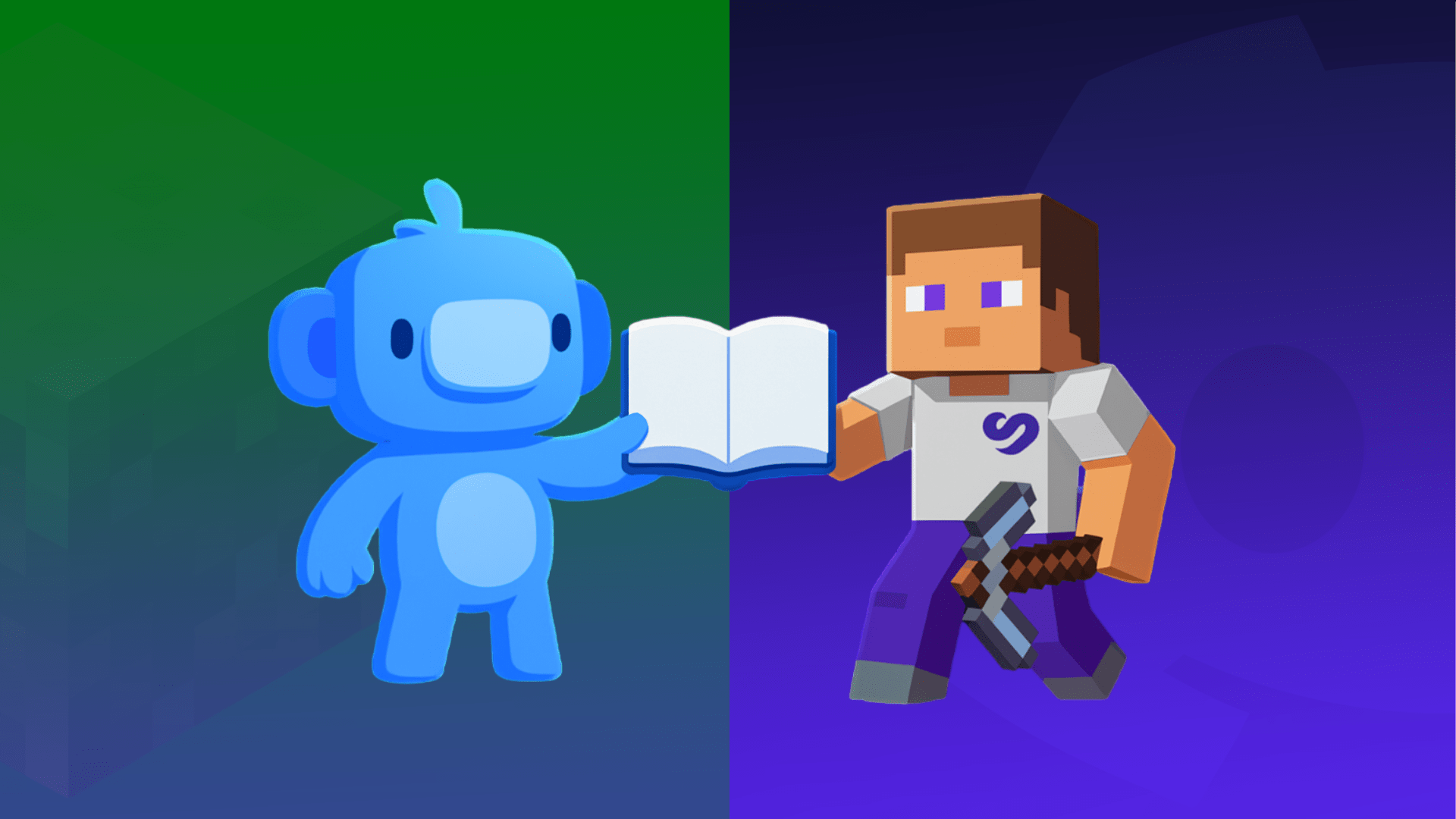How 20 Core Violation Categories Can Make your Communities Safer
July 15, 2025
Maria Tamellini
Part of the DefenderNet series, this article explores a unified framework to protect players, empower moderators, and build trust across Minecraft and Discord communities. Read the full project introduction here.
Moderation is one of the hardest parts of running a gaming community, especially as your community grows. We’ve spent years speaking with community owners and moderators from Minecraft and Discord communities who deal with:
- Vague or inconsistent rules
- Moderator burnout
- Gaps in reporting
- Players who don’t trust the system
That’s why GamerSafer, with support from Safe Online, created a framework built for real communities like yours — scalable, transparent, and easy to adopt.
Introducing DefenderNet
DefenderNet is a cross-platform system that powers structured moderation across thousands of Minecraft and Discord communities. It brings together:
- Secure infrastructure (encrypted database + open API)
- Integration-ready, free tools, like the GS Defender bot (Discord) and GS Bans plugin (Minecraft)
- A unified framework, with 20 violation categories built with input from Trust and Safety professionals and community owners.
All of this helps you build safer, more organized communities, while keeping control over your own community enforcement decisions.
DefenderNet goes even further with Trusted Communities:
- Players flagged for severe harm in any Trusted Community can be automatically blocked from joining others within the network.
Trusted community status is earned through a structured onboarding process with GamerSafer, which includes training and alignment with safety standards. This ensures communities are well-prepared to share safety signals responsibly and respond appropriately to high-severity threats.
It acts as a collaborative shield, helping to block repeat offenders across trusted communities, while respecting each community’s autonomy.
Why Standardizing Categories Matter?
Without a clear structure, moderators often report incidents in different ways like “spam, “annoying”, “flood” or “bye”. This makes it difficult to spot trends, take action, ban appeals, or even trust your own data.
By using the same 20 violation categories across communities and platforms, you get:
- Faster onboarding for new moderators
- Clearer and fairer enforcement
- Better tracking of harmful behavior
- Blocking repeat offenders across Trusted Communities for high severity threats
- Higher-quality safety data
- Reduce moderation bias
The 20 Violation Categories (with brief explanations)
These categories help standardize your reports while still letting you define your own community rules and punishments.
- Anti-gameplay – Intentional actions that disrupt fair play or ruin the experience for others (e.g., griefing, trolling, sabotage).
- Bot – Unauthorized or malicious use of bots that spam, exploit systems, or disrupt gameplay.
- Child Sexual Abuse and or Exploitation Material (CSAM/CSEM) – Any content that visually or descriptively depicts child sexual abuse and/or exploitation, including images, videos, illustrated, computer-generated or other forms of realistic depictions.
- Online Child Sexual Exploitation and Abuse (OCSEA) – Grooming, coercion, or manipulative contact used to exploit or abuse children in online spaces, even without explicit material.
- Cybercrimes – Criminal activity such as data theft, doxxing, or financial fraud.
- Explicit Content – Adult, pornographic, or graphically violent material inappropriate for general audiences.
- Extremism – Promoting or glorifying terrorism, hate ideologies, or violent political agendas.
- Frauds and Scams – Deceptive tactics to steal money, accounts, or in-game assets.
- Hacking – Use of unauthorized tools or exploits to gain unfair advantages or damage systems.
- Harassment – Targeted, repeated behavior intended to intimidate, demean, or emotionally harm others.
- Harming the Server – Actions that threaten server integrity, stability, or performance (e.g., exploits, crash attempts).
- Hate Speech – Attacks based on race, religion, gender, sexuality, or other protected traits.
- Hostility – Aggressive, toxic, or antagonistic behavior that undermines the community atmosphere.
- Misinformation – Sharing false or misleading information that causes harm or confusion.
- Other – Harmful behavior that doesn’t fit other categories; use only when no better match exists.
- Promotion – Unauthorized advertising or link sharing, including self-promotion and invites.
- Promotion of Self-Harm – Encouraging, glorifying, or joking about suicide or self-harm.
- Punishment Evasion – Attempting to bypass bans, mutes, or other disciplinary actions.
- Spamming – Excessive or repeated messaging that disrupts communication.
- Threats – Direct or implied threats of violence, harm, or malicious action.
These categories were developed through industry research, expert consultation, and hands-on testing with server communities. They provide a solid foundation for effective moderation, which is essential to building thriving communities where players return and stay engaged. We recognize that no framework is perfect and remain committed to reviewing and refining these categories regularly as the online landscape evolves and new safety challenges emerge.
Coming Up Next in DefenderNet Blog Series: How to Apply Violation Categories with Examples.
Ready to get started?
You can integrate your community today using the GS Defender bot and/or GS Bans plugin for free. Whether you’re a small community or a massive, DefenderNet helps you keep your community safe, without sacrificing your autonomy.
Taking action is the best way to impact the gaming community
If you liked this blog post, spread the message!
We would love to hear what you’re doing to make the gaming community a safer and more inclusive environment.
Tell us about it using the form below.
Twitter – Instagram – LinkedIn – YouTube
Want your community to be recognized as a trusted space? Fill out this form to ask how you can get started!
You can also join our Discord Guild.
Terms of Service – Privacy Policy
© 2019-2025, GAMERSAFER, Inc. All rights reserved. GAMERSAFER trademarks are registered in the US.
Some images on this site may be enhanced with ethical generative AI
The post How 20 Core Violation Categories Can Make Your Communities Safer appeared first on GamerSafer.
News
Berita
News Flash
Blog
Technology
Sports
Sport
Football
Tips
Finance
Berita Terkini
Berita Terbaru
Berita Kekinian
News
Berita Terkini
Olahraga
Pasang Internet Myrepublic
Jasa Import China
Jasa Import Door to Door
Gaming center adalah sebuah tempat atau fasilitas yang menyediakan berbagai perangkat dan layanan untuk bermain video game, baik di PC, konsol, maupun mesin arcade. Gaming center ini bisa dikunjungi oleh siapa saja yang ingin bermain game secara individu atau bersama teman-teman. Beberapa gaming center juga sering digunakan sebagai lokasi turnamen game atau esports.



